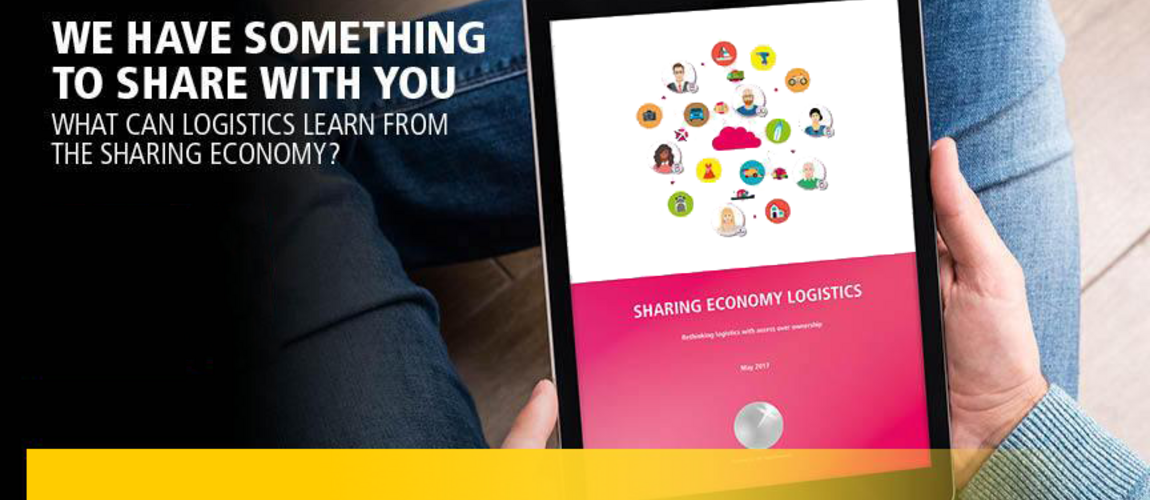
Logistics will play an important role in shaping the sharing economy. DHL, the global logistics service provider, concludes in a just released trend report that there are great opportunities for logistics in embracing digital platforms and business models focused on asset sharing. The report entitled 'Sharing Economy Logistics - Rethinking Logistics with access over ownership' provides insight into the functioning of the sharing economy and presents practical applications for the logistics chain.
How sharing works
In the sharing economy, people or organizations temporarily use a product, someone else's service, that is not yet optimally used. Not only does this make better use of the investment, the owner also taps into a new stream of income in the form of fees for use. Sharing is also good for the environment as existing products are better used and less needs to be produced. PriceWaterhouseCoopers has identified five growth sectors with significant growth potential: travel, car sharing, finance, the temporary work market and media streaming. These five sectors alone are expected to grow the sharing economy from the $15 billion it was in 2014 to $335 billion in 2025.
Sharing is not new in logistics. In the early days of DHL in the 70s, the company was already working with an early form of sharing in which travelers received a free plane ticket in exchange for bringing express documents.
Sharing economy in logistics
Other examples of sharing in logistics are the sharing of warehouse space, transport options, operational data and employees. For example, research shows that 1 in 4 trucks in Europe and the US drive (partially) empty. Digital platforms can provide an up-to-date picture of available cargo space in trucks, including smaller delivery cars and even private cars. Saladoo! is such a freight platform that provides real-time insight into available cargo space at all kinds of destinations. It uses the global network of smartphone users to make the freight capacity accessible to a large group of shippers. Bringing together services and knowledge in distribution centers used by multiple customers creates scale with financial benefits and productivity gains.
There are also challenges; liability risks, transparency, insurance and the protection of personnel are aspects that need to be covered. Even more challenging is the pace at which technological progress and social change are taking place and at which laws and regulations must keep pace. Cooperation between companies and government is therefore essential to be able to take advantage of the opportunities that the sharing economy offers in logistics.
Read the full trend report 'Sharing Economy Logistics - Rethinking Logistics with access over ownership'.
